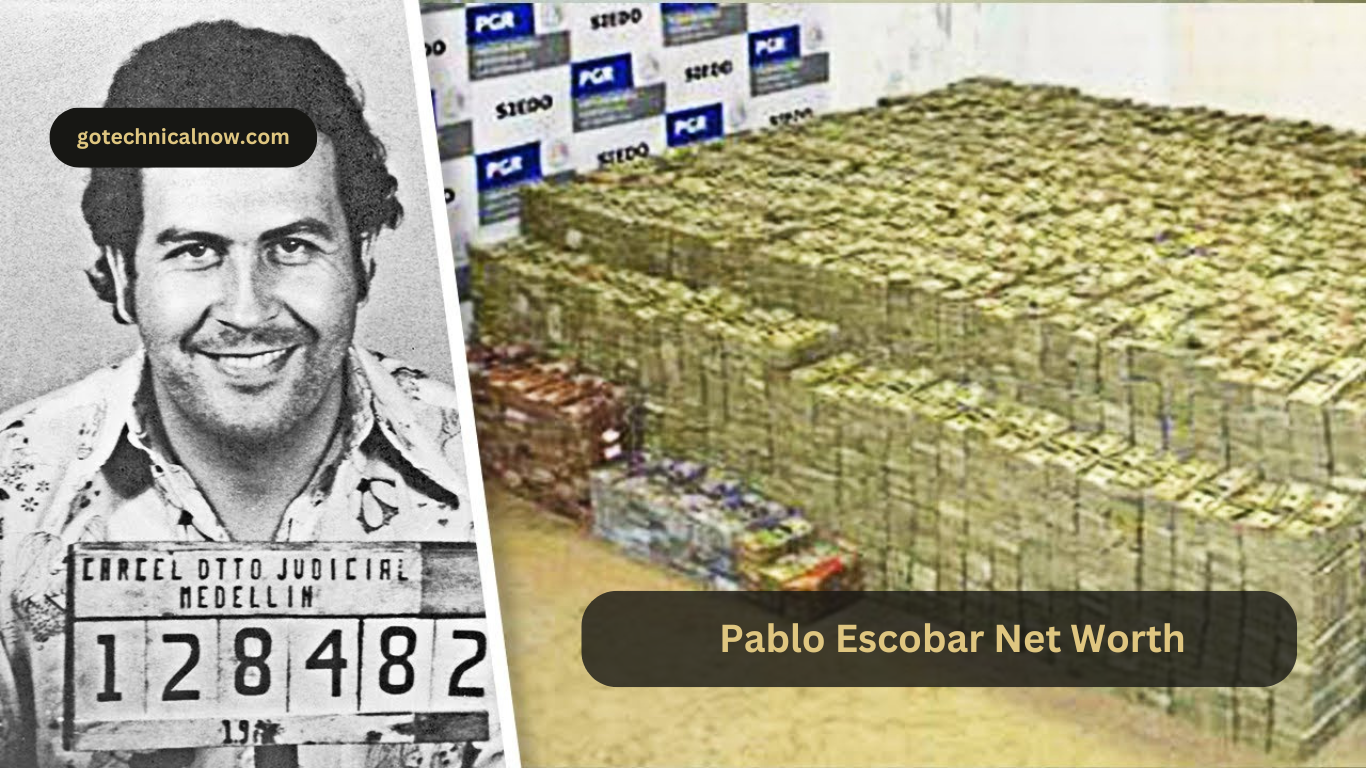Pablo Emilio Escobar Gaviria was born on December 1, 1949, in Rionegro, Antioquia, Colombia. He was the third of seven children in a modest family. His father, Abel de Jesús Dari Escobar Echeverri, was a farmer, while his mother, Hermilda Gaviria, was a schoolteacher. Growing up in Medellín, young Pablo exhibited entrepreneurial skills early on, albeit through petty criminal activities such as selling contraband cigarettes and fake lottery tickets.
Career: The Rise of a Drug Lord
Escobar’s career in the world of crime began with small-scale smuggling operations, but he quickly realized the immense profit potential in the cocaine trade. By the mid-1970s, he had established the Medellín Cartel, which would become one of the most powerful drug trafficking organizations in history.
Establishing the Medellín Cartel
Under Escobar’s leadership, the Medellín Cartel controlled a significant portion of the global cocaine market. At its peak, the cartel was responsible for smuggling over 80% of the cocaine entering the United States. Escobar’s operations were characterized by extreme violence, bribery, and an extensive network of corruption that infiltrated law enforcement and political systems both in Colombia and abroad.
Notorious Acts and Political Ambitions
Escobar’s ruthless tactics included assassinations of judges, politicians, and police officers who opposed him. Despite his criminal activities, he attempted to gain political legitimacy by getting elected as an alternate member of the Colombian Congress in 1982. However, his political ambitions were short-lived as his criminal background was exposed, leading to his expulsion from Congress and increased scrutiny from authorities.
Relationships and Personal Life
Escobar married Maria Victoria Henao in 1976, when she was just 15 years old, and he was 27. The couple had two children, Juan Pablo (now known as Sebastián Marroquín) and Manuela. Despite his violent and criminal lifestyle, Escobar was known to be a loving and dedicated family man. He built a luxurious estate, Hacienda Nápoles, which included a private zoo, a lake, and a collection of exotic animals for his family.
Extramarital Affairs
Pablo Escobar was notorious for his numerous extramarital affairs. His relationships with various women were well-documented and contributed to his larger-than-life image. Despite this, his wife, Maria Victoria, stood by him until his death.
Real Estate Empire
Escobar’s immense wealth allowed him to amass a vast real estate portfolio. One of his most famous properties was the Hacienda Nápoles, located in Puerto Triunfo, Colombia. This sprawling estate covered about 7,000 acres and featured opulent amenities, including a private airport and a bullring. The estate became a symbol of Escobar’s wealth and extravagance.
International Properties
Beyond Colombia, Escobar owned properties in the United States and other countries. He purchased luxurious mansions and estates in Miami, Florida, and other locations to launder his drug money and expand his empire. These properties often served as safe houses and operational bases for his cartel activities.
Net Worth: The King of Cocaine’s Fortune
Estimating Pablo Escobar’s net worth is challenging due to the illicit nature of his earnings. However, at the height of his power in the late 1980s, his net worth was estimated to be around $30 billion. This staggering amount made him one of the richest men in the world at the time.
Daily Earnings and Wealth Management
Escobar’s cartel reportedly earned around $420 million per week, translating to approximately $22 billion annually. His immense wealth led to peculiar problems, such as dealing with large amounts of cash. It is rumored that Escobar spent around $2,500 per month on rubber bands to hold stacks of cash together and lost billions to spoilage and rodents.
Age and Demise
Pablo Escobar’s reign of terror came to an end on December 2, 1993, when he was killed by Colombian National Police in Medellín. At the time of his death, he was 44 years old. His death marked the collapse of the Medellín Cartel, but his legacy and impact on the drug trade continue to be felt.
Legacy and Cultural Impact
Escobar’s life and exploits have left a lasting imprint on popular culture. He has been the subject of numerous books, documentaries, and television series. The Netflix series “Narcos,” which chronicles the rise and fall of Escobar and the Medellín Cartel, has brought his story to a global audience, further cementing his infamy.
Impact on Colombia
Pablo Escobar’s legacy in Colombia is complex. While he is remembered for the violence and chaos he brought to the country, he is also seen by some as a Robin Hood-like figure. During his lifetime, Escobar funded numerous social projects, including housing for the poor and sports facilities, in an attempt to gain public favor and legitimacy.
Conclusion
Pablo Escobar’s life was a paradox of extreme wealth and violence. His rise from a petty criminal to one of the world’s most powerful drug lords is a testament to his cunning and ruthlessness. Despite his death over two decades ago, his story remains a compelling saga of power, corruption, and the human cost of the drug trade. Escobar’s net worth and legacy continue to intrigue and captivate the world, serving as a stark reminder of the dark side of wealth and power.










